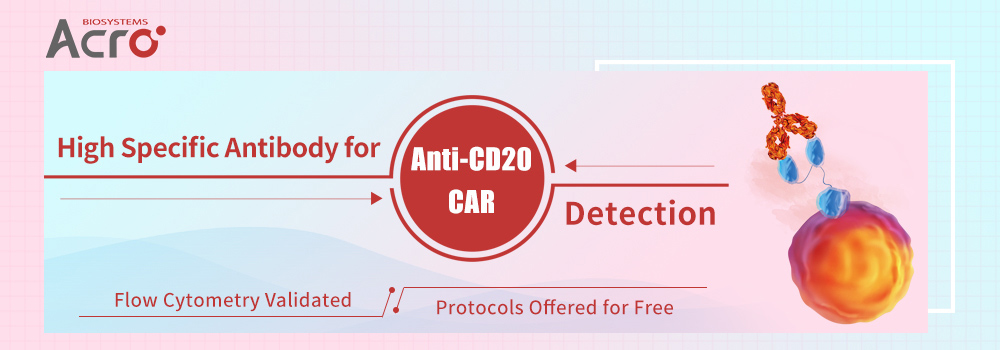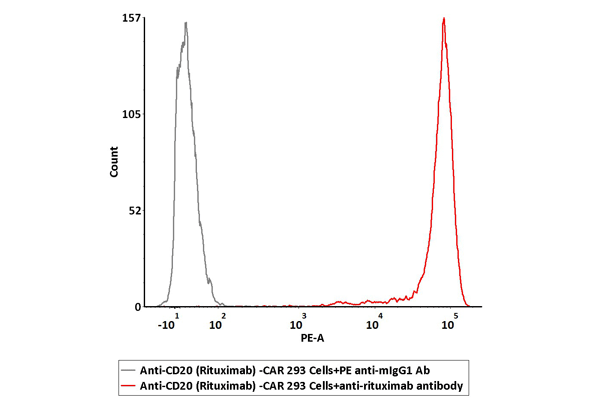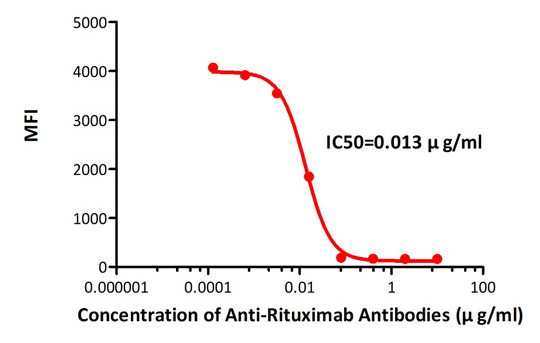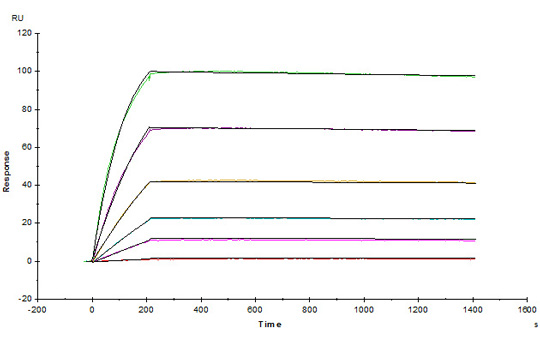
Leave message
Can’t find what you’re looking for?
Fill out this form to inquire about our custom protein services!
Inquire about our Custom Services >>


































 Request a FREE Sample of our FcRn Binding Kit!
Request a FREE Sample of our FcRn Binding Kit! Request a FREE Sample of our Fc gamma RI / CD64 Binding Kit !
Request a FREE Sample of our Fc gamma RI / CD64 Binding Kit !
 Happy Holiday! Limited Keychain here with your next order
Happy Holiday! Limited Keychain here with your next order Happy Holiday! Limited Keychain here with your next order
Happy Holiday! Limited Keychain here with your next order
 Request a FREE sample of our GMP products!
Request a FREE sample of our GMP products!  Request a FREE sample of our GMP products!
Request a FREE sample of our GMP products!
> mAb for Anti-CD20 CAR Detection 
CD20 is an attractive target for CAR-T cell therapy in the treatment of B-cell malignancies, and it is also the target for rituximab. Rituximab is the first B-cell targeting therapeutic antibody approved by the US FDA in 1997. Recently, more and more scientists tried to construct their CD20 targeting CARs based on the scFv derived from rituximab. However, it is difficult to find an appropriate reagent for the evaluation of anti-CD20 (rituximab) CAR expression on the market.
To solve this issue, ACROBiosystems has developed the anti-rituximab monoclonal antibodies, which can recognize anti-CD20 (rituximab) CAR with high sensitivity and high specificity. The performance of anti-rituximab monoclonal antibodies were validated by flow cytometry (FCM) in house. And the antibodies are suit for detecting Anti-CD20 (rituximab) CAR expression. ACRO can provide the corresponding protocols for free.

2×105 Anti-CD20 (Rituximab)-CAR 293 cells were first stained with anti-rituximab antibody (mouse IgG1, Cat. No. RIB-Y35) and followed by incubation with PE-labeled anti-mouse IgG1 antibody. PE-labeled anti-mouse IgG1 antibody was used as a negative control.

Flow Cytometry analysis shows that the binding of rituximab to 293F overexpressing CD20 was inhibited by increasing concentration of anti-rituximab antibodies (Cat. No. RIB-Y35). The concentration of rituximab used is 10 ng/ml. The IC50 is 0.013 μg/ml.

Anti-rituximab antibodies (mouse IgG1, Cat. No. RIB-Y35) captured on CM5 chip via anti-mouse antibodies surface, can bind rituximab with an affinity constant of 0.03 nM.
This web search service is supported by Google Inc.








